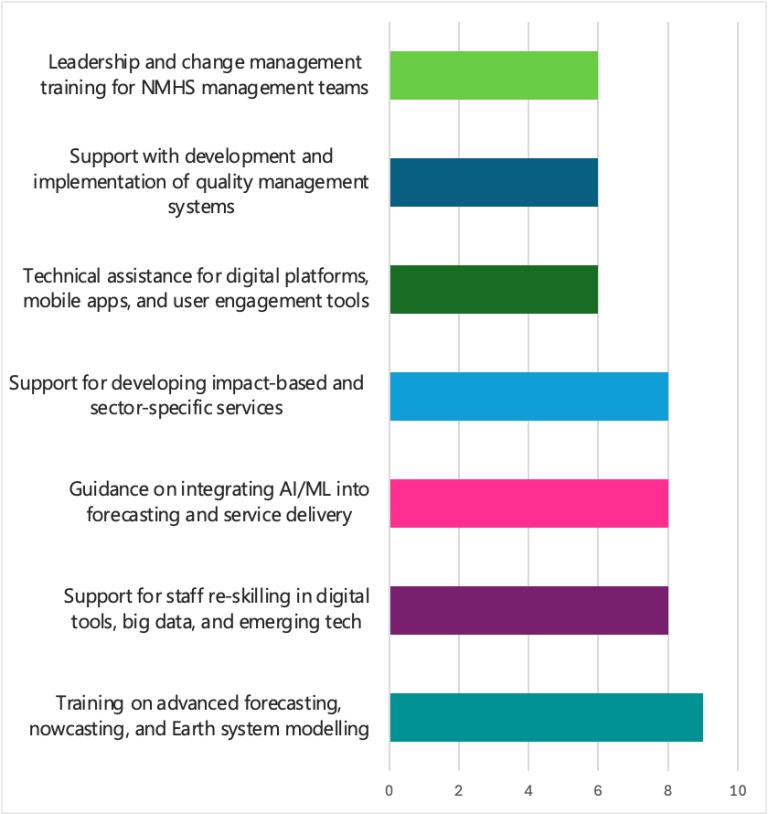Participatory process to developing the WMO Strategic Plan
Following Executive Council's approval in June of a Member-driven approach for developing the WMO Strategic Plan for 2028-2031, the first steps in this participatory process have been taken place. Two online subregional workshops for the Americas were held on 26 August and 4 September, gathering 87 participants from Regional Association III (RAIII, South America) and Regional Association IV (RA IV, North America, Central America and the Caribbean). The workshops allowed Members to identify regional priorities early in the planning cycle and ensure that their perspectives are reflected in the Strategic Plan. A survey conducted prior to the workshops provided a basis for further the discussions (see Figures 1 and 2).

The first workshop brought together experts from Central America, the Caribbean and South America, the second experts from across North, Central and South America. Both sessions provided space to exchange views on regional challenges and to propose practical solutions. The workshops built on the priorities for 2028-2031 already endorsed by the 19th Session of RA IV in March, and the outcomes will inform the identification of priorities for the coming RA III session.
Participants identified various common issues facing National Meteorological and Hydrological Services (NMHSs):
- Governance: Limited autonomy and government support, weak political influence and low visibility reduce institutional effectiveness
- Human resources: Recruiting and retaining young professionals remains a challenge, while training programs need to be modernized
- Technology: There are significant gaps in access to Artificial Intelligence (AI), high-performance computing and cybersecurity
- Services: Demand is increasing, in areas such as aviation, marine services, hydrology and early warning systems, while misinformation is affecting public trust
- Financing: Budget instability undermines operations, especially in developing countries and Small-Island Developing States (SIDS).
They also offered several recommendations and practical solutions to address these challenges:
- Strengthen NMHS independence through reforms and governance audits
- Enhance training programs, update curricula and create incentives to retain young talent
- Improve access to advanced technology and promote regional sharing of best practices
- Align services with international standards and develop strategies to counter misinformation
- Develop tailored financing plans, showcase socioeconomic benefits of NMHS activities and focus investments on developing countries and SIDS.
Permanent Representatives and Hydrological Advisers welcomed the workshops as an important step in strengthening dialogue between Members and the Secretariat, ensuring that local needs provide a solid basis for global goals. They underlined the value of early input and the importance of a well-structured process to ensure that the priorities of all regions are considered in the Strategic Plan.
Further subregional consultations will take place in October in other parts of the world. The WMO Policy Advisory Committee will consolidate the recommendations in 2026 as part of the preparation of the draft Strategic Plan 2028-2031. The contributions of Members will provide a strong foundation for this work.






